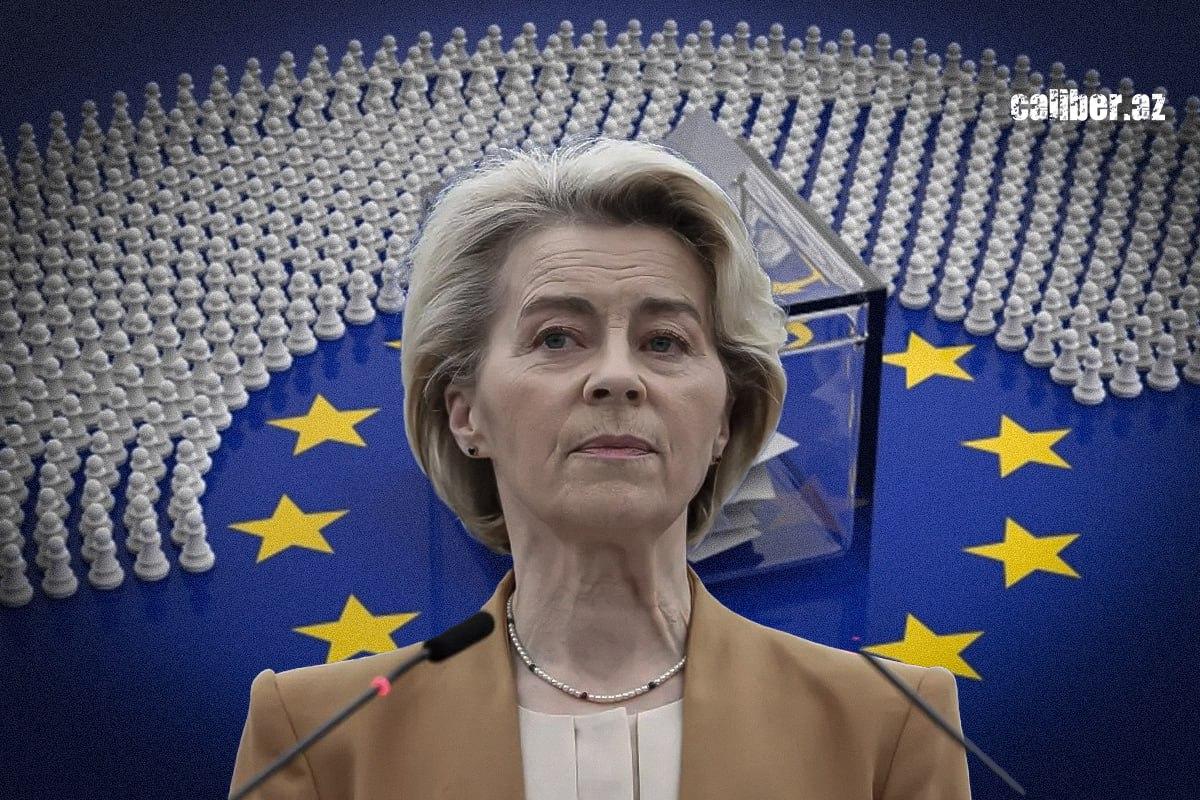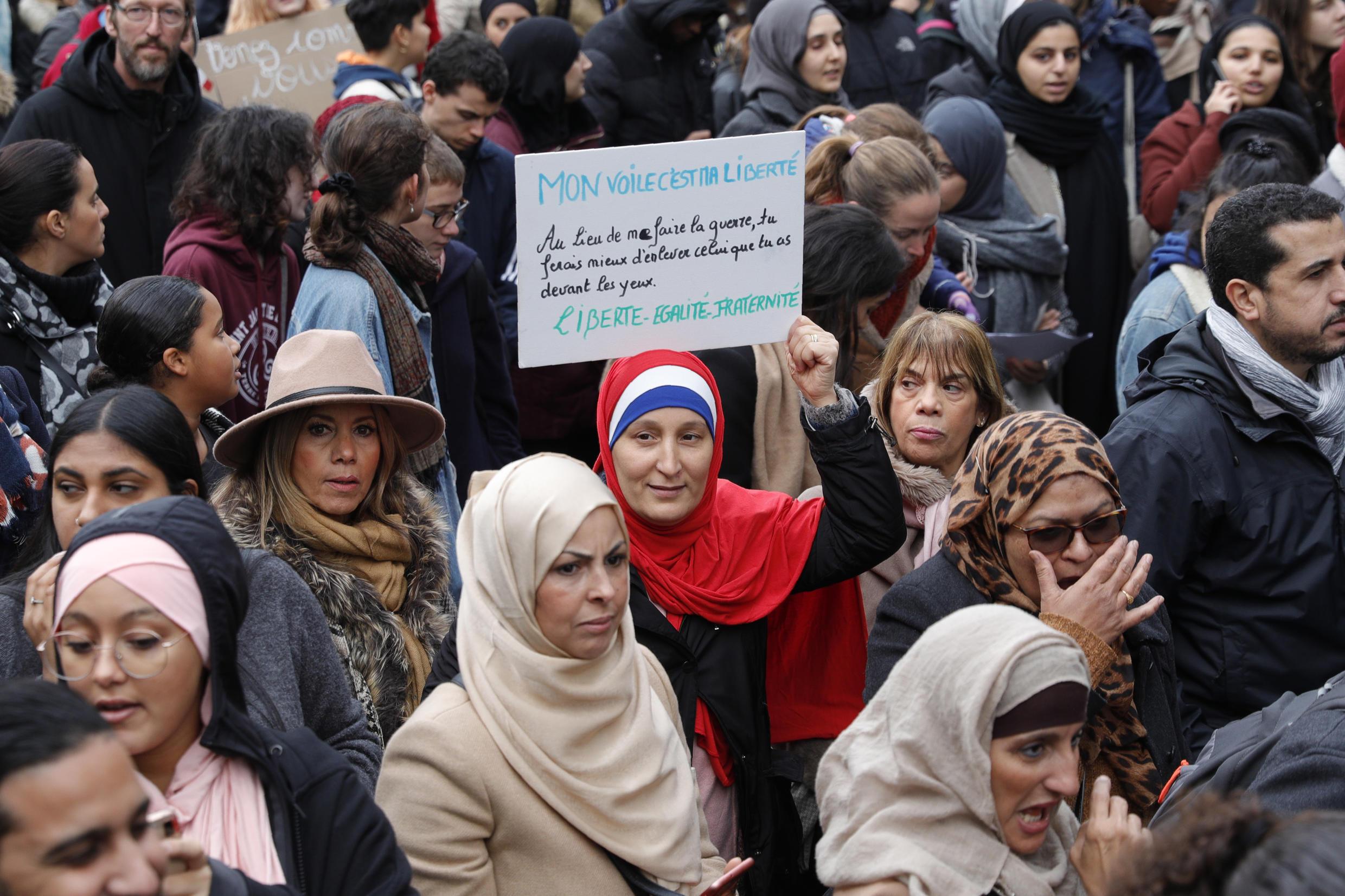Rising Islamophobia, corruption, battle against snails European Parliament shifts right
European Parliament elections showed that the largest political force in the EP was the center-right European People's Party, which includes the President of the European Commission, Ursula von der Leyen. In total, more than 360 million Europeans voted to elect 720 MEPs.
Thus, according to the results of the EP elections, the current head of the European Commission Ursula von der Leyen may remain in office until 2029. Her center-right group in the European Parliament - the European People's Party (EPP) - won 189 out of 720 seats (in the outgoing EP it had 176 mandates).
"We won the European elections. We are undoubtedly the strongest party. We are the anchor of stability,” she told reporters gathered at the European Parliament in Brussels as the preliminary election results revealed. - We will build a bastion against the extreme left and right."
Curiously, against the backdrop of right-wing success in France and Germany, von der Leyen promised to build “a bastion against the extremes on the left and right.” "No majority can be formed without the European People's Party. We will stop them. That's for sure,” the European Commission chief assured.

In second place are the Social Democrats, who get 135 mandates. Third on the list is the liberal faction “Renewing Europe”, which won 83 seats, 19 less than in 2019.
The Greens/European Free Alliance, who had 72 seats and will now have to settle for only 53 mandates, have lost ground.
“European Conservatives and Reformists” (ECR) get 72 seats, the right-wing nationalist faction Identity and Democracy - 58, the left-wing European United Left/Nordic Green Left - 35 seats. Another 95 seats will go to non-faction MPs.
The previous elections to the European Parliament were held in 2019, when the UK was still part of the EU. After Brexit, the number of MEPs decreased from 751 to 705. Subsequently, the number of European MEPs expanded from 705 to 720. Back in early June, Eurobarometer data showed that 10 per cent more Europeans plan to vote this year than in 2019. And Politico suggested that due to the likely increase in votes cast for right-wing parties, the European Parliament could become “more pro-Russian and less green” at the end of the election. "
“The nationalist right and far-right could pick up almost a quarter of the seats in the European Parliament and for the first time be able to influence Europe's agenda,” the publication said. And it was not wrong in its predictions. However, despite the fact that the right-wing won more seats in the European Parliament, the center-right holds the most power. According to international analysts, the success of the right-wing is largely due to their growing popularity among voters, as well as the fact that Europeans are simply tired of center-left and populist forces both in the leadership of their countries and the EU.
By the way, former Foreign Minister and former leader of the Social Democratic Party of Germany (SPD) Sigmar Gabriel said that the results of the elections to the European Parliament were a disappointment for the ruling “Traffic Light” coalition (named so because of the colors of its parties).
As the ARD TV channel specifies with reference to the polling data, according to the results of the elections to the European Parliament in Germany, the first place was taken by the bloc of the Christian Democratic and Christian Social Union (CDU/CSU) with 30 per cent of votes, the second - the right-wing party “Alternative for Germany” (AfD) with 15.9 per cent of votes. Third place went to Chancellor Olaf Scholz's Social Democratic Party of Germany (SPD) with the worst result in its history - 13.9 per cent.
At the same time, it is worth noting the key point. The success of the far-right in the European Parliament elections showed not only the defeat of Olaf Scholz in Germany, but also the crushing collapse of Emmanuel Macron's politics in France. The master of the Elysee Palace actually recognized the defeat of the presidential party “Renaissance” in the elections to the European Parliament after the evening of June 9 he made an address to the nation, in which he announced the dissolution of the National Assembly - the lower house of the French parliament. And, as is already known, the first round of elections will be held on June 30 and the second round on July 7. In parallel, the right-wing National Rally party, led by Marine Le Pen, won an impressive victory with twice as many votes as Macron's party (31.5 per cent vs. 14.5 per cent).
Incidentally, Hungarian Prime Minister Viktor Orban's Fidesz party came in first with 43.7 per cent. The new challenger party, led by former Loyalist turned Orban critic Péter Magyar, received 30.7 per cent of the vote. In Greece, the ruling party lost votes in the European elections, while right-wing parties gained ground.
In Austria, the far-right Freedom Party came first with 25.7 per cent, ahead of the conservative People's Party and the Social Democrats with 24.7 per cent and 23.2 per cent, respectively.
In the Netherlands, Geert Wilders' far-right party came in second behind the Green Left Alliance with 17 per cent of the vote, while the Green Left Alliance, led by former European Commission Vice President Frans Timmermans, took 21.1 per cent.
According to the Associated Press, “the far right could now become a major player in policies ranging from migration to security and climate.” Reuters estimates that despite the success of right-wing and radical right-wing parties, the leading force in the European Parliament following election results will still be the main pro-European parties.
Greek Foreign Minister George Gerapetritis said in an interview with ERTNews that the results of the European Parliament elections will have a significant impact on the situation in the European Union and within individual countries. He pointed out that in the two “driving forces of the European Union, France and Germany, the election results are strongly changing the established domestic political climate of the states.”

In this connection, it is appropriate to ask the following question: will the EU's policy towards Muslims in Europe change against the background of growing Islamophobia? After all, as we know, the right-wing traditionally advocates much tougher measures against migrants and Islam, including the complete closure of borders and the abolition of the right to asylum in Europe. Especially since in recent years Islamophobia has become a widespread and entrenched phenomenon in a number of EU countries. Islamophobia in Europe manifests itself in various forms, from biased legislation and political rhetoric to everyday discrimination and attacks against Muslims. These phenomena not only undermine the foundations of democratic and liberal values that underpin European integration, but also provoke social ruptures and tensions between different ethnic and religious groups. And the popularity of extreme right-wing parties in EP elections shows that anti-Islamic sentiments will only grow in brown Europe.
By the way, in this context, it would be logical to quote the words of Azerbaijani President Ilham Aliyev, which he said this March in his message to the participants of the international conference held in Baku themed “Embracing Diversity: Tackling Islamophobia in 2024”.
“In some European countries where Islamophobia has skyrocketed and been promoted as an official ideology, such insulting actions as the burning of our holy book of Quran and publishing caricatures of the Prophet Mohammad, are presented as the freedom of speech,” the President emphasized then, noting that Azerbaijan is also a country that suffers from Islamophobia.
As an example of this we can cite the provocative activities of the European Parliament with regard to Azerbaijan, in particular, the resolutions of anti-Azerbaijani orientation, in which the EP called on the EU to impose sanctions against Azerbaijan in connection with the fact that the country single-handedly restored territorial integrity and sovereignty, finally putting an end to the Karabakh conflict.
All these facts show that European politics as a whole is in a deep political crisis and should be subjected to appropriate reforms in the structures under its control, and first of all in the European Parliament itself. But this is hardly thought about in the Old World. They have other problems.
No, it's not off the charts corruption in the European Parliament, but a snail problem. Yes, they are the ones that European officials will be tackling after the people of Belgium ran into trouble during the country's European Parliament and federal parliamentary elections. "The snails are out of control. They enjoy more than the wet weather that accompanies us. And they have their own hobby - chewing the correspondence in the mailbox if you live outside the city. Everything gets in there: advertisements, your bills and even election invitations,” the Belgianssay, grasping their heads....








